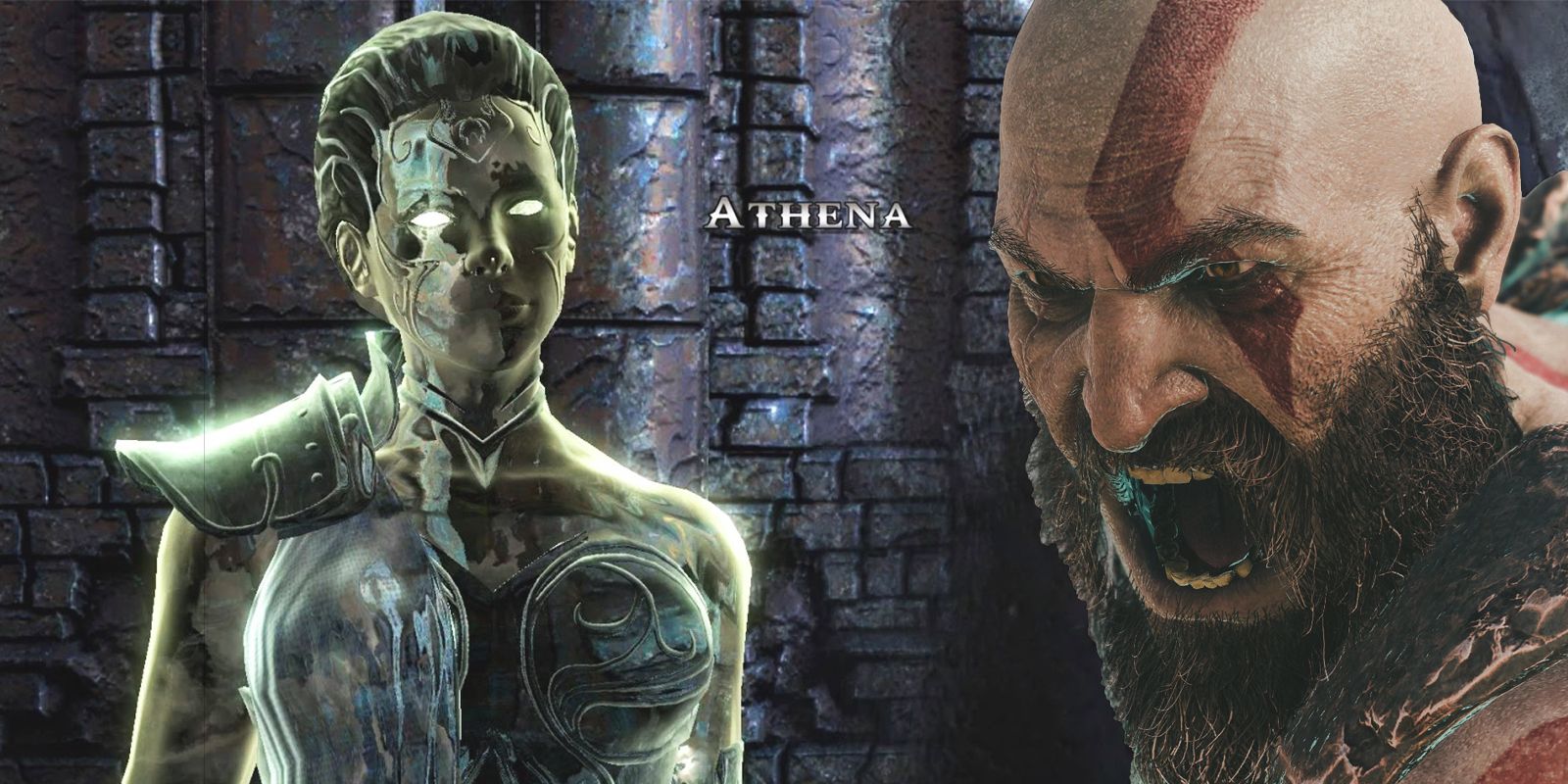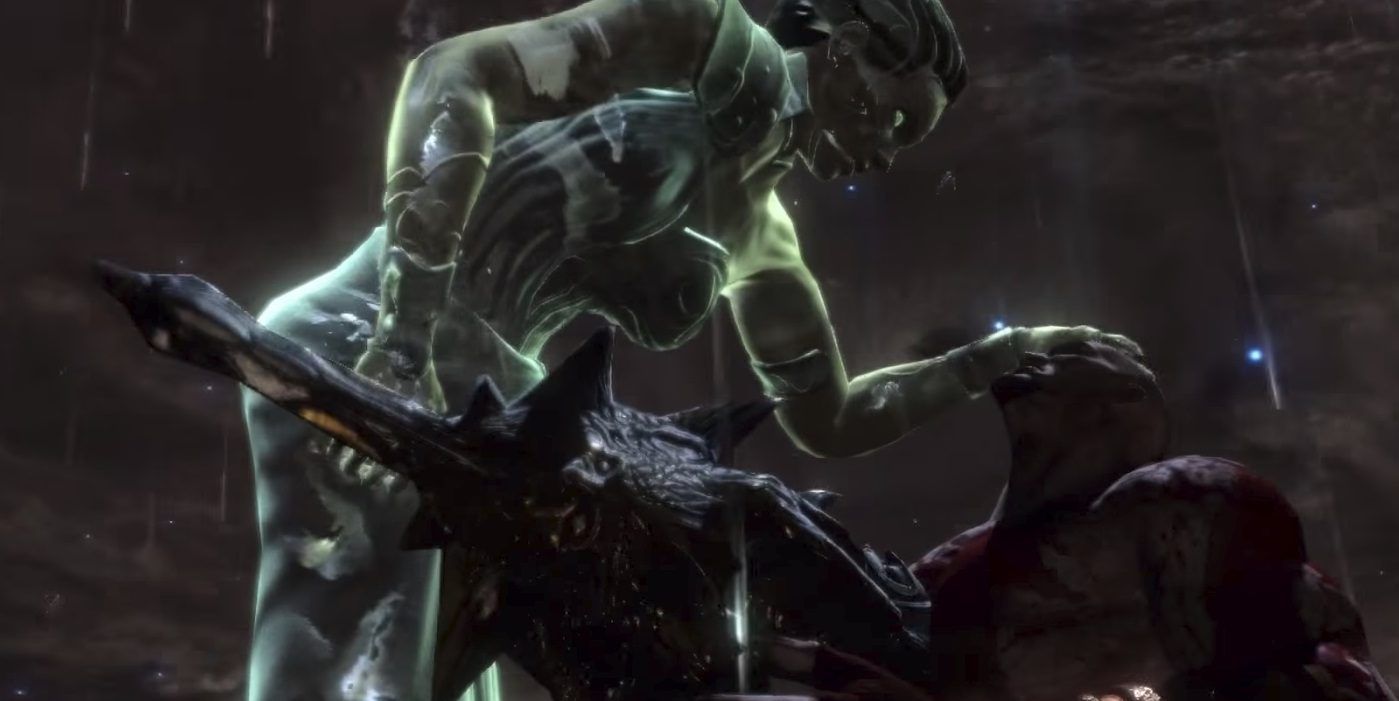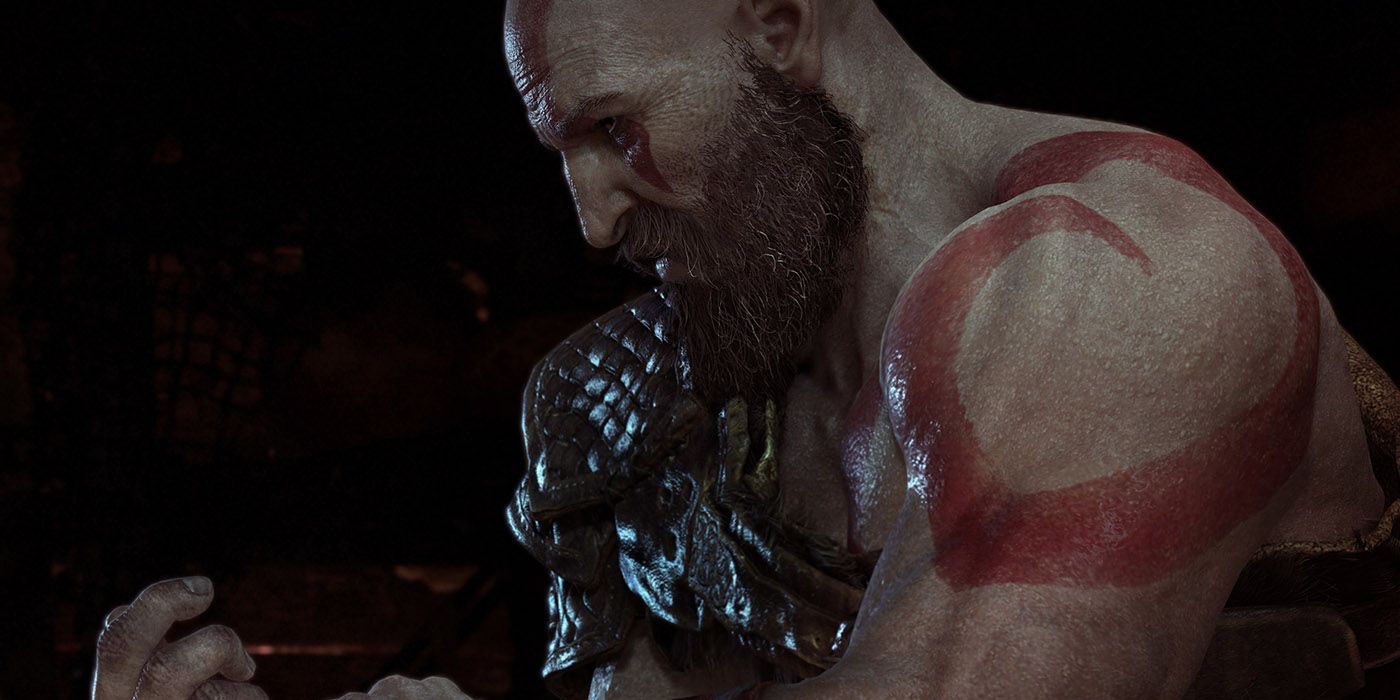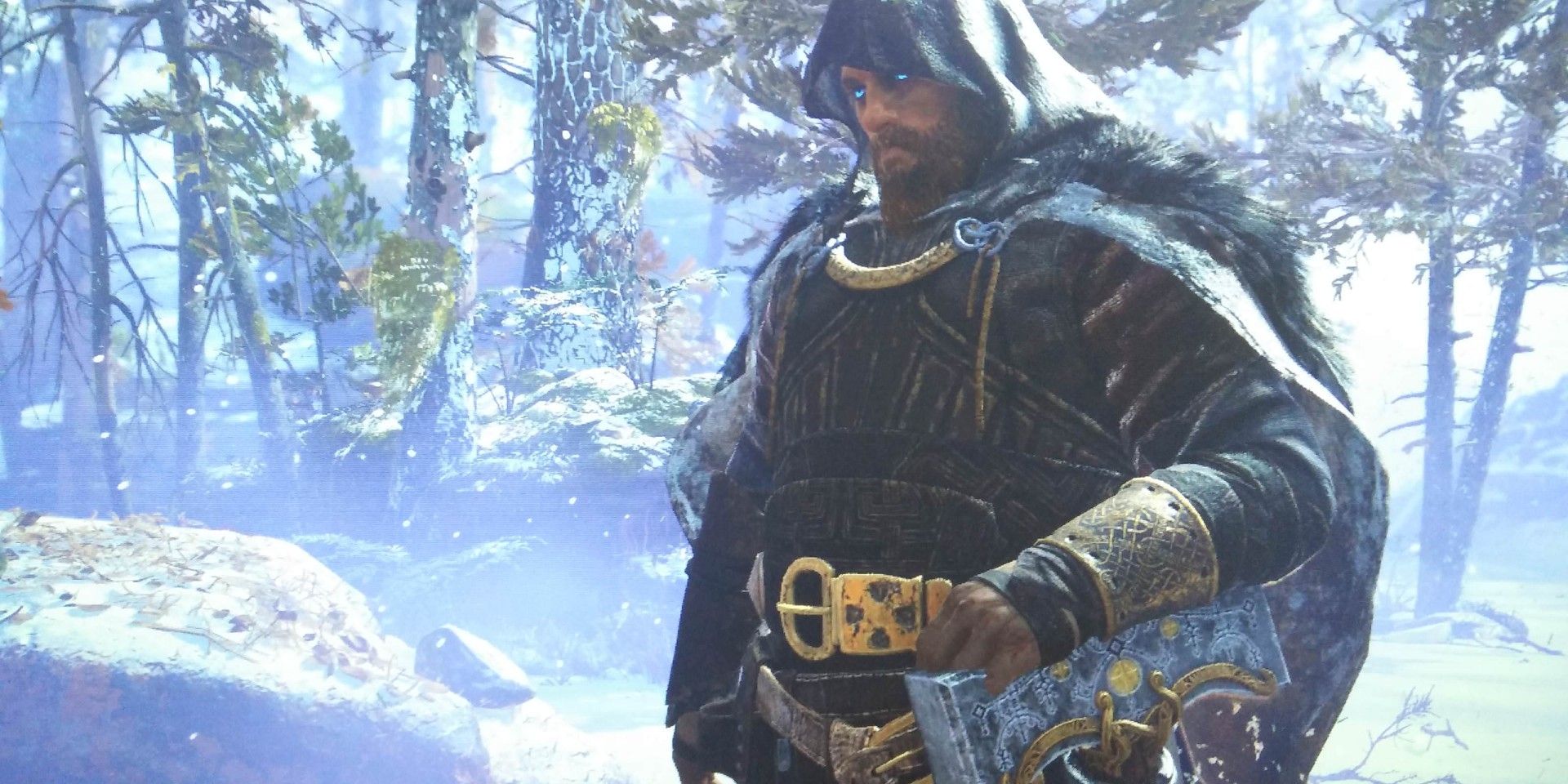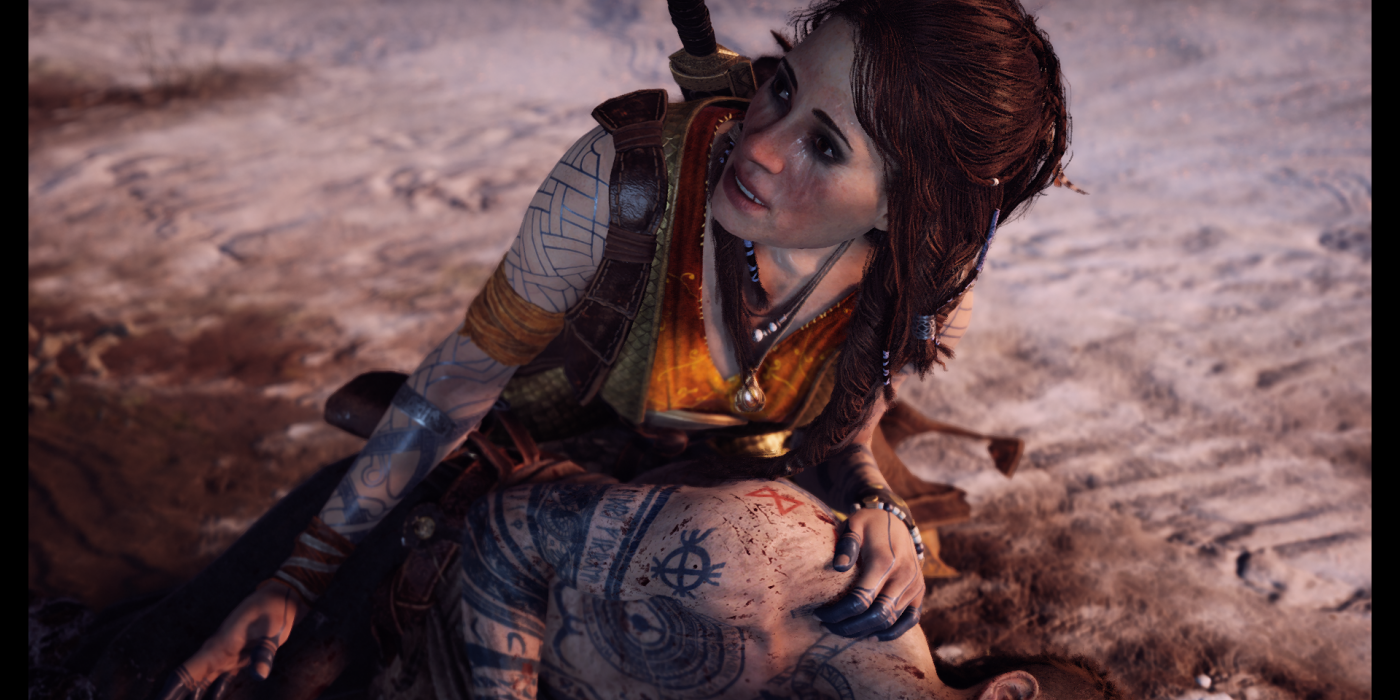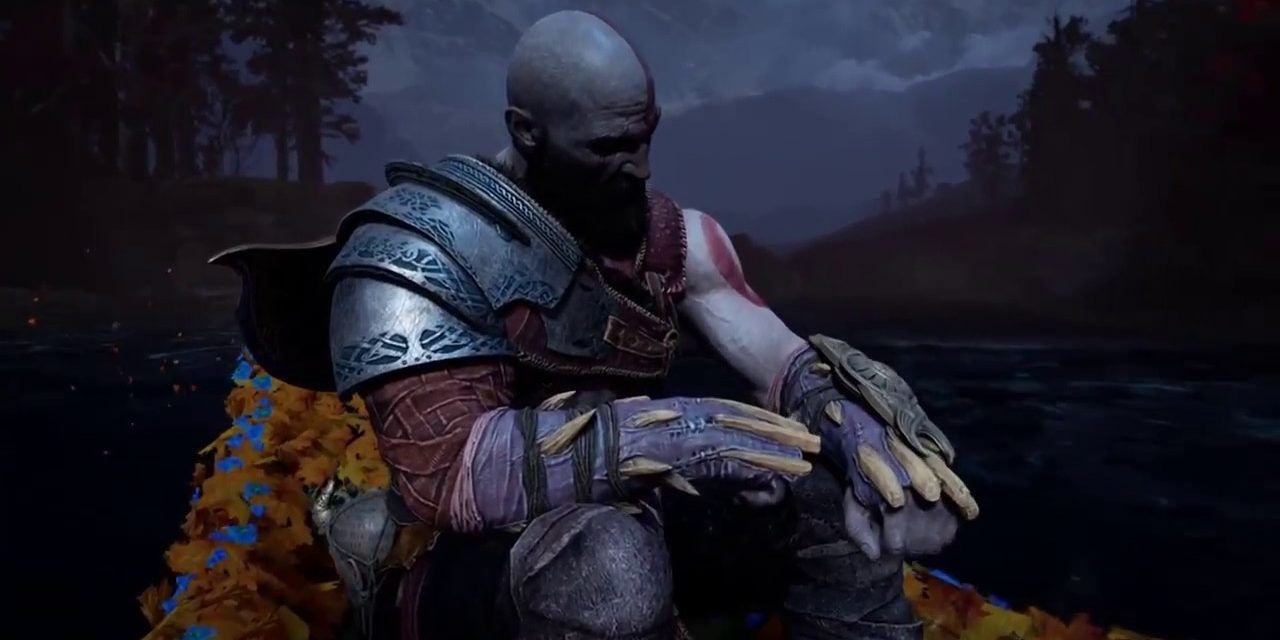The sequel to the critically acclaimed God of War is set to come out sometime in 2021 (or, as some have suggested, 2022). As implied by the range of the game's release window, very little is known about its development or even its official name. As of right now, the internet has named the sequel God of War: Ragnarok, after the official teaser trailer shown during the PS5 Showcase ended with the text, "Ragnarok is coming." This has left fans speculating about what the coming sequel will include and who the father-son duo will face off with next. With the reveal of Athena's continued presence in Kratos' life, it may be safe to posit that she will be the game's primary antagonist.
[Warning: Spoilers ahead for God of War (2018)]
The end of 2018's God of War left more than a few questions as to where the future of the series will go. As players approach the final moments of the game, a painting is revealed. The painting depicted the journey Kratos and Atreus had embarked on for the entire game, and showed the potential fate for Kratos and Atreus. With the series' focus on the theme of the son killing the father, many have seen the final image to be Atreus fulfilling the same destiny as Kratos did with his father, Zeus.
The Greek pantheon also makes cameos throughout God of War's most recent game. Kratos relives his final moments with Zeus in Helheim, inadvertently revealing the cycle of patricide to Atreus. Later, while exploring a treasure vault, Kratos stumbles across a Greek vase depicting his exploits as the God of War, which he immediately shatters. The most important return comes when Kratos is forced to reckon with his past and comes face to face with the astral form of his old friend and enemy, Athena.
Kratos and Athena's Relationship In God of War
Throughout the God of War series, Kratos and Athena's relationship tragically degraded. Athena initially helped Kratos by giving him the power to kill Ares, making him the new God of War. As Kratos continued down his path of revenge to kill the Olympians, especially Zeus, a rift formed between the two which ultimately ended in Athena sacrificing herself to save her father at the end of God of War 2 - attempting to break the cycle of the son killing the father.
Death wasn't the end for Athena, though. Throughout God of War 3, her astral form guides Kratos towards his goal under the guise of freeing humanity. When Kratos successfully kills Zeus, however, Athena reveals that her plan was free humanity by being the sole Queen of Olympus. To achieve this, she needed the power of hope stored within Pandora's Box.
However, when they opened Pandora's Box to defeat Ares, its contents poured out into the world which caused the chaos and death that surrounds the series. Upon seeing the empty box, Athena realized that the power of hope was now embedded in Kratos, hidden beneath his rage, grief, and sorrow.
Kratos would come to accept that he had to release the power of hope to humanity in order to save them from the chaos and destruction he had caused, and the only way to do so was to sacrifice himself. Kratos impaled himself with the Blade of Olympus, and as he lay on the ground in a pool of blood, Athena removed the blade and vanished, leaving Kratos to finally die.
Athena's Return in God of War 2018
Kratos somehow survived his impalement, but the evidence is still there. A giant scar stretches across his torso, a constant reminder of his past and uncontrolled rage. Kratos is ashamed of who he is, the power he has, and what all of this has already done to humanity. However, when Baldur threatens his family at the start of God of War (2018), he chooses to use his rage to protect his son Atreus.
Early on, there are hints to a sickness in Atreus that, at a pivotal point in the game, overwhelms him and brings him close to death. Kratos realizes, with the help of Freya, that it is Atreus' godhood, rage, and fear causing turmoil within him. Now confronted with the consequences of trying to hide the past, Kratos returns home to retrieve the Blades of Chaos in order to venture into Helheim. The Blades of Chaos represent unbearable pain and anguish for Kratos, having used them to kill his first family in a blind rage brought on by Ares. Though Kratos inherited the Blades of Chaos upon defeating Ares, he chose to rid himself of them altogether. However, it is revealed in the game's tie-in comic God of War: Fallen God that the blades always found their way back to Kratos.
As Kratos wraps the chains around his arms once more, Athena appears in the doorway. She speaks, voicing his biggest insecurities and using his grief as her weapon. When Kratos raises the blades, now glowing once again with the fires of Olympus, the words "You cannot change. You will always be a monster." falls from Athena's mouth. Realizing he must accept this part of him, Kratos agrees, but states that he is her "monster no longer" before walking through her and turning her astral form to embers.
Athena has seemingly haunted Kratos for some time, but how she is bound to him is unknown. Maybe her astral form is bound to the Blades of Chaos, becoming the reason they always returned to Kratos, or perhaps she has followed him of her own free will. What is known, thanks to God of War: The Official Novelization, is that Athena isn't gone yet. She is still watching and tormenting Kratos:
"A reflection in a blade seized his heart. He turned. Athena, the one goddess that so tormented his mind, filled the doorway."
"... she watched him silently with a smug, satisfied smile on her otherwise stone face."
With this in mind, here are three theories for how her role as the main antagonist in God of War: Ragnarok could manifest.
GoW Ragnarok Theory 1: A Source of Power
Athena's incredible powers are catalogued on her God of War Wiki page. She is capable of bestowing or amplifying power, previously giving Kratos the "Rage of the Gods" which plays an important role in his victory over Baldur and Atreus' discovery of his godhood. This specific ability may continue to be an important story mechanic, as both Athena and the Norse Gods have seen what Kratos did to the god who cannot die.
In the post-credits sequence for God of War (2018), Atreus has a premonition in the form of a dream. In it, a violent storm rages, not unlike the one summoned by Kratos' rage and grief when Atreus was near death. After opening the door, it's revealed that Thor has come, harnessing an immense amount of power. While Thor, the God of Thunder and Storms, is incredibly powerful on his own, Athena has the ability to amplify that tenfold. Athena may end up potentially granting Thor his own version of the Rage of the Gods in order to match Kratos. After all, it may be their only hope in defeating Kratos.
GoW Ragnarok Theory 2: A Source of Revenge
Similar to the God of War theory above, Athena may choose to bestow power to Freya. With Freya vowing to kill Kratos for killing her son, she and Athena have a lot in common. Though Athena set in motion the death of her family, her true goal at first was to liberate humanity with hope, not by killing the gods. The anger built-up in Athena by the end of God of War 3 compliments that of the already-powerful Freya.
This would also be a smart move for the Goddess of Wisdom. In Greek mythology, Athena was always able to best her brother Ares because she would outsmart him with advanced tactics to overcome brute force. Her very being is built on defeating the God of War by playing the long game, and that game may be entering its climax with this new and powerful pantheon. Freya, with her own ability to outsmart the gods, could prove to be a powerful ally to Athena. Their combined power and intellect could prove to be a near unbeatable enemy to Kratos and Atreus.
GoW Ragnarok Theory 3: A Source of Doubt
Ultimately, Athena may just continue to plague the mind of Kratos now that he has fully unleashed his past. By dawning the Blades of Chaos, embracing his godhood after so many years and telling Atreus the truth of who he is, Athena has the chance to live on through his revival of the past. It's still unclear if this version of Athena is the true astral form seen in God of War 3 or if she is just an illusion conjured by Kratos' grief. Regardless, Athena holds two important powers to make either scenario work: the ability to possess objects and pyrokinesis - the ability to control fire. Athena may have possessed the Blades of Chaos, causing them to always find their way back to Kratos, and would explain why she appeared as he dawned the blades once more, igniting them with his rage.
Athena is undoubtedly going to play an important role in the next chapter of Kratos' story. Even in this new land, the same struggles of sons killing parents, hiding the past, and seeking revenge are front and center. Athena has almost come to embody these themes. As more details about God of War: Ragnarok trickle out over the next year or so, a clearer picture will begin to form, and one of this theories may just turn out to be true.

